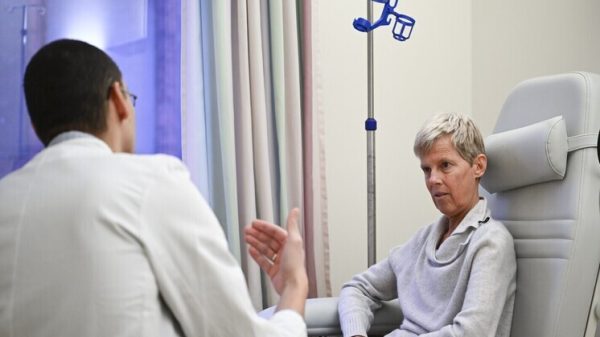
MOSCOW, May 27. National Research University BelSU scientists have learned how to produce powder from a new biomedical alloy that is harmless to the body for the production of medical implants. The proposed method was used for the first time in Russia, the university press service reported.
Previously, researchers from the Belgorod State National Research University (NRU BelSU) obtained and patented the biomedical alloy Ti30Zr38Nb20Ta8Sn4, which is biocompatible, non-toxic to the body and does not interfere with the growth of multipotent stem cells.
Recently, scientists have been faced with the task of learning how to obtain powder from this alloy in order to make medical implants from it using selective laser melting, said Professor of the Department of Materials Science and Nanotechnology, Doctor of Technical Sciences Sergei Zherebtsov.
““Our team was the first in Russia to use the ultrasonic atomization method to obtain a biocompatible metal powder from a high-entropy alloy. Previously, we also obtained powders for dental alloys using this method,” said Zherebtsov.
1 of 2

2 of 2
1 of 2
2 of 2
He explained that high-speed ultrasonic vibration in an inert environment transforms a flow of five-component metal melt Ti30Zr38Nb20Ta8Sn4 into powder from microparticles of ideal spherical shape and specified size.
Due to the absence of friction between particles, the mobility of the powder is comparable to the fluidity of a liquid. This provides it with a number of advantages in additive manufacturing: increased accuracy in reproducing the density and height of the applied layer and minimal shrinkage after melting.
“The method we have developed makes it possible to obtain a powder whose elemental composition corresponds to the original cast state of the alloy. We have also experimentally confirmed the uniform distribution of the chemical elements of the alloy in the resulting powder,” noted Maxim Ozerov, a researcher at the Laboratory of Bulk Nanostructured Materials of the BelSU National Research University, Candidate of Technical Sciences.
To implement scientific developments, today scientists are negotiating with potential industrial partners.
Research and experiments were carried out on the basis of the laboratory of bulk nanostructured materials with the support of the strategic academic leadership program «Priority 2030» of the national project «Science and Universities» .























































Свежие комментарии